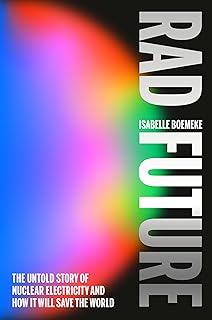The Nuclear Energy Agency (NEA) hosted the NEST SMR Hackathon, a unique event that brought together teams of students from various disciplines to collaborate and innovate solutions for the deployment of advanced nuclear energy. This hackathon marked the beginning of a series of interactive lectures and online focus group meetings led by distinguished educators from Canada and the United States.
The 2020 Small Modular Reactor Hackathon aimed to foster discussions on nuclear energy solutions through a blend of formal case studies and informal brainstorming sessions. Organized by the NEA Education, Skills, and Technology Framework (NEST) SMR project in collaboration with the Nuclear Energy Agency and the Small Modular Advanced Reactor Training (SMART) program, the event attracted students from across the globe.
Participants engaged in a series of online lectures delivered by experts in engineering, science, and social sciences. The hackathon also featured small team breakout sessions where students explored innovative aspects of Small Modular Reactor (SMR) technology. Each student team focused on a specific case study, integrating traditional engineering principles with social and political considerations to devise comprehensive solutions.
One of the key highlights of the event was the opportunity for students to interact with government and industry representatives, engage in panel discussions with global leaders, and receive training on project management and execution. Students were tasked with preparing outcome reports that encompassed technical, societal, regulatory, and policy elements related to deploying advanced nuclear technologies.
Throughout the hackathon, student teams collaborated in virtual cafes, discussing insights from the daily meetings and crafting their presentations on deployment scenarios. Emphasizing diversity, groups of 3-4 students were strategically formed based on geographic location and skill sets to encourage varied perspectives and innovative solutions.
The hackathon culminated in the submission of digital-ready reports that outlined the SMR needs, considerations, challenges, economics, and social implications for their chosen case studies. Students were encouraged to explore creative presentation formats, such as podcasts, webinars, videos, performances, or animations, to convey their proposed solutions effectively.
The event, held from August 17 to 21, 2020, featured partnerships with esteemed institutions like McMaster University, University of California at Berkeley, EPFL, and other leading academic entities. Presenters included top experts in the field, offering valuable insights and guidance to the student participants.
In conclusion, the NEST SMR Hackathon provided a platform for students to delve into the complexities of advanced nuclear energy deployment, fostering collaboration, innovation, and cross-disciplinary learning. By merging scientific and social perspectives, the hackathon underscored the importance of holistic solutions in addressing the challenges of modern energy technologies.
📰 Related Articles
- University of Sydney’s Global Partnerships Drive Innovation and Collaboration
- China Leads Global Digital Education Innovation and Collaboration
- Zoomark 2025 Showcases Global Pet Industry Growth and Innovation
- Young Engineer’s Unique Lego Shearing Shed Sparks Innovation
- World of Coffee Geneva Showcases Global Innovation and Sustainability






